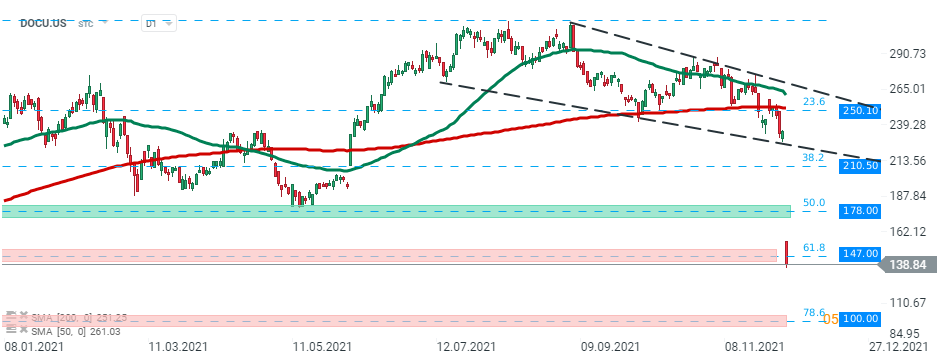DocuSign (DOCU.US) stock slumped 40% during today's session after the business software company offered earnings guidance below expectations, suggesting the boom from remote work may be lessening. The developer of e-signature software expects fourth-quarter revenue in the region between $557 million and $563 million, while analysts had on average expected revenue of $573.8 million for the quarter, according to Refinitiv. This announcement overshadowed upbeat quarterly results. Company earned 58 cents per share, compared to analysts’ estimates of 46 cents per share. Revenue of $545.5 million also topped market projections of $531 million. “After six quarters of accelerated growth, we saw customers return to more normalized buying patterns, resulting in 28% year-over-year billings growth,” CEO Don Springer said in the company’s quarterly earnings release.

DocuSign (DOCU.US) stock launched today’s session with a massive bearish price gap and is currently testing support at $ 147.00 which is marked with 61.8% Fibonacci retracement of the upward wave launched back in 2018. Should break lower occur, downward move may accelerate towards psychological $100 level which coincides with 78.6% Fibonacci retracement. On the other hand, if buyers manage to regain control here, then upward impulse towards local resistance at $178.00 may be launched. Source: xStation5

Daily summary: Silver plunges 9% 🚨Indices, crypto and precious metals under pressure

Does the current sell-off signal the end of quantum companies?

Howmet Aerospace surges 10% after earnings reaching $100 bilion market cap 📈

US Open: Cisco Systems slides 10% after earnings 📉 Mixed sentiments on Wall Street


